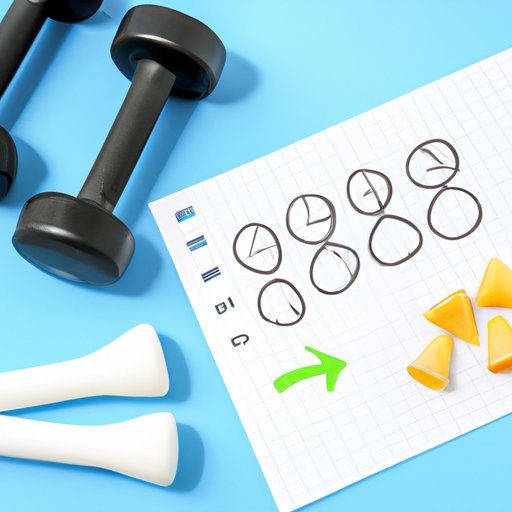
Introduction
When it comes to exercising, there are many questions to consider. One of the most common is whether you should exercise before or after you eat. While there are benefits to both options, it ultimately depends on your individual needs and preferences. In this article, we’ll explore the science and benefits of exercising before and after eating, as well as provide tips on how to determine the best option for you.
The Science Behind Exercising Before or After Eating: Which is More Effective?
Many people believe that exercising on an empty stomach is more effective for burning calories and losing weight. However, there is evidence to suggest that exercising after eating can also be beneficial. When you eat, your body converts the food into glucose, which provides energy for your muscles. Exercising after eating can provide your body with the necessary fuel to power through your workout. On the other hand, exercising on an empty stomach can cause your body to burn stored fat for energy, leading to weight loss. Ultimately, the effectiveness of each option depends on your individual goals and needs.
Pre-Workout Fuel: Should You Eat Before or After Hitting the Gym?
While exercising on an empty stomach can lead to weight loss, it’s important to fuel up before a workout to ensure you have the energy and stamina to power through. Eating before a workout can also help with muscle recovery and overall performance. Some beneficial foods to eat before a workout include complex carbohydrates, such as whole grains and fruit, as well as lean protein, such as chicken or fish. When it comes to timing, it’s recommended to eat a small meal or snack about 30-60 minutes before exercising. However, every individual is different, and it’s important to listen to your body to determine the best timing for you.
The Pros and Cons of Eating Before or After Exercising
Both options have their advantages and disadvantages. For example, eating before exercising can provide necessary fuel and lead to better overall performance. However, it can also cause discomfort and cramping if you eat too much or don’t allow enough time for digestion. On the other hand, exercising on an empty stomach can lead to weight loss and fat burning. However, it can also lead to fatigue and low energy levels. It’s important to consider your individual goals and needs when determining which option is best for you.
The Truth Behind the Myth: Does Exercising on an Empty Stomach Burn More Calories?
Exercising on an empty stomach has been a popular belief for years, with many people believing it to be more effective for weight loss. However, research has found mixed results on whether it actually leads to calorie burning and weight loss. Some studies have found that exercising on an empty stomach can increase fat burning and weight loss, while others have found no significant difference in calorie burning between exercising before or after eating. Ultimately, the benefits of each option depend on your individual goals and needs.
Finding the Sweet Spot: How to Determine the Best Time to Eat Before or After Your Workout
Determining the best time to eat before or after exercising involves trial and error. It’s important to listen to your body and determine what works best for you. Some helpful guidelines include eating a small meal or snack about 30-60 minutes before exercising, allowing time for digestion, and choosing foods that are high in complex carbohydrates and lean protein. After exercising, it’s important to eat within 30 minutes to an hour to promote muscle recovery and replenish glycogen stores.
Conclusion
In conclusion, there is no one-size-fits-all answer to whether you should exercise before or after eating. It ultimately depends on your individual goals and needs. However, it’s important to consider the science and benefits of each option, as well as experimenting with different approaches to determine what works best for you. Whether you choose to exercise on an empty stomach, fuel up before hitting the gym, or find a sweet spot in between, the most important thing is to listen to your body and do what works best for you.




